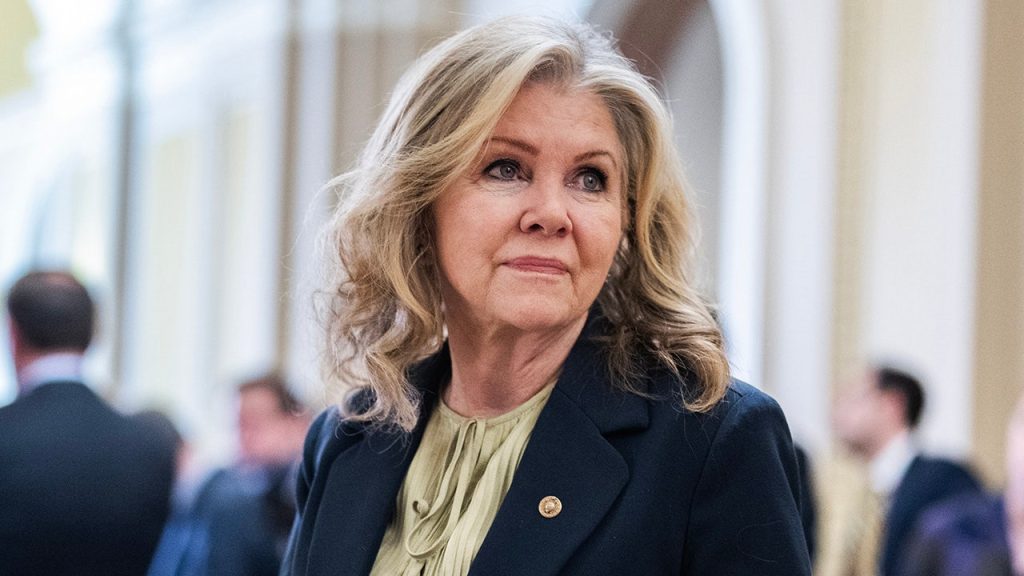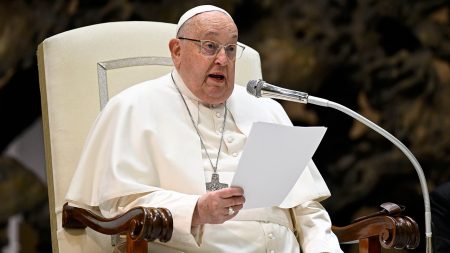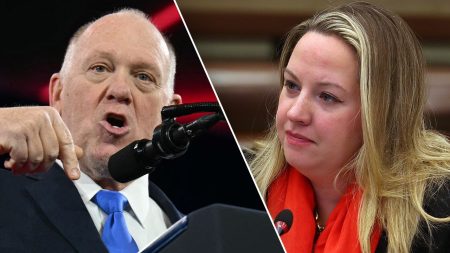Senator Marsha Blackburn’s proposed “DOGE Acts” represent a significant legislative push to align with the cost-cutting objectives of the Department of Government Efficiency (DOGE), spearheaded by Elon Musk and Vivek Ramaswamy under the incoming Trump administration. This legislative package, announced on X (formerly Twitter), aims to tackle perceived inefficiencies and bloat within the federal government through a multi-pronged approach. Central to Blackburn’s proposal is the relocation of federal agencies away from Washington, D.C., a move often advocated by those seeking to decentralize power and reduce the influence of lobbyists and special interests concentrated in the nation’s capital. This relocation effort aligns with a broader sentiment to dismantle what some perceive as the “D.C. swamp,” a term often used to describe perceived bureaucratic stagnation and corruption.
The DOGE Acts also include a proposed one-year freeze on federal hiring and salaries. This measure aims to curb government spending and address concerns about the size and growth of the federal workforce. Proponents argue that a temporary freeze provides an opportunity to assess current staffing levels, identify redundancies, and implement more efficient personnel management practices. Critics, however, may argue that such a freeze could hinder the government’s ability to deliver essential services and potentially lead to a loss of valuable expertise. Furthermore, the proposal to establish a merit-based salary system aims to reward performance and incentivize productivity within the federal workforce, shifting away from what some perceive as an entrenched system of automatic raises and promotions based on seniority.
Blackburn’s announcement follows a series of meetings between Musk, Ramaswamy, and members of Congress to discuss DOGE’s cost-cutting framework. These meetings have generated considerable interest and support among Republican lawmakers, with many expressing enthusiasm for the proposed reforms. Senator Joni Ernst, chair of the Senate’s DOGE Caucus, has even unveiled a comprehensive cost-cutting proposal of her own, further demonstrating the momentum gathering behind these efficiency initiatives. The bipartisan nature of the support is further evidenced by Representative Jared Moskowitz, a Democrat, joining the House’s DOGE Caucus, indicating a potential willingness to collaborate across party lines on government reform.
The DOGE initiative’s core objective is to streamline government operations and reduce spending. This goal is being pursued through various strategies, including the relocation of agencies, hiring and salary freezes, and the implementation of a merit-based pay system. These proposals aim to address concerns about government overreach, inefficiency, and wasteful spending. While proponents argue that these measures are necessary to improve government performance and accountability, critics may raise concerns about potential negative impacts on government services and employee morale. The long-term effects of these proposed reforms, if implemented, remain to be seen.
The DOGE Acts’ focus on relocating federal agencies outside of Washington, D.C., carries significant implications. Proponents argue that such a move would disperse power, reduce the influence of special interests, and potentially stimulate economic growth in other regions of the country. Opponents, however, may express concerns about logistical challenges, the disruption of established networks and infrastructure, and the potential loss of institutional knowledge concentrated in the capital. The debate surrounding agency relocation highlights the complex considerations involved in balancing efficiency with the effective functioning of government.
The proposed hiring and salary freeze, while presented as a cost-cutting measure, could have wide-ranging consequences for the federal workforce. While supporters argue that it provides an opportunity to reassess staffing needs and implement more efficient personnel practices, critics may argue that it could lead to a brain drain, hinder recruitment efforts, and negatively impact morale among existing employees. The long-term impact on the government’s ability to attract and retain qualified personnel remains a key consideration in evaluating the merits of this proposal. Furthermore, the shift to a merit-based salary system raises questions about how performance will be measured and evaluated, and whether such a system can be implemented fairly and effectively across the diverse landscape of federal agencies and job roles. These complex issues are likely to be central to the ongoing debate surrounding the DOGE Acts and the broader effort to reform government operations.










